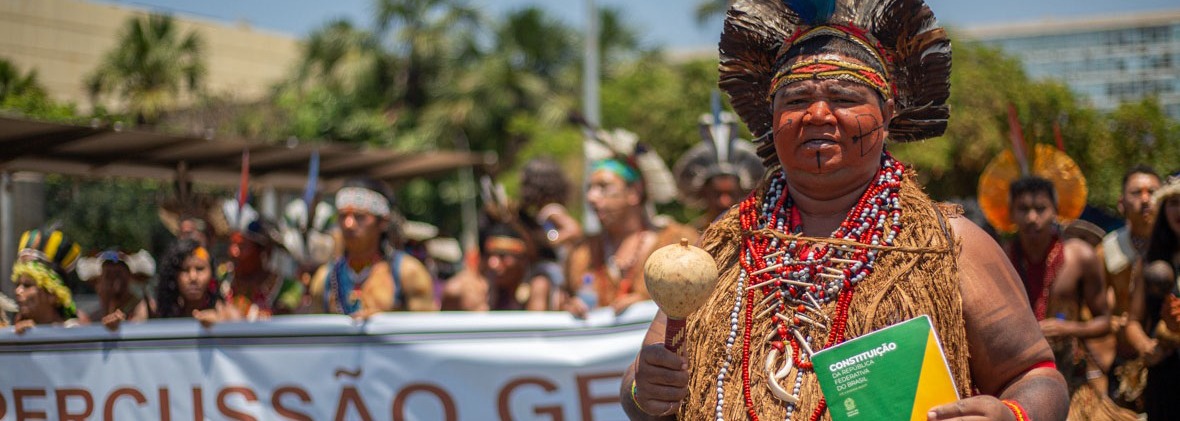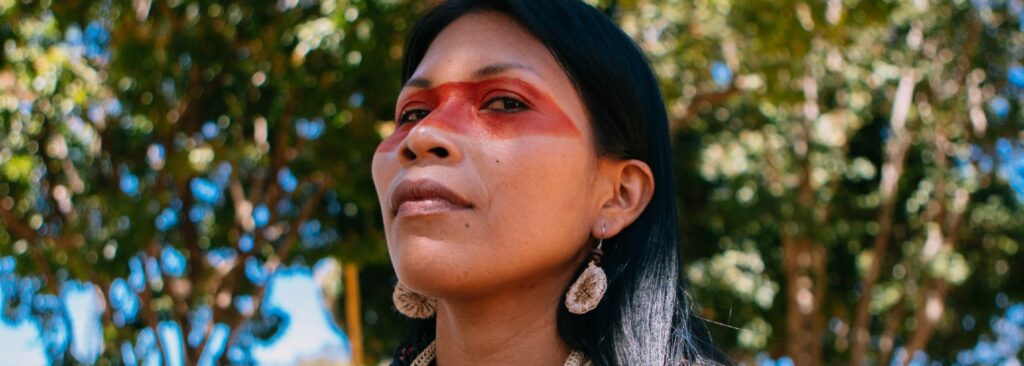In the state of Maranhão in northern Brazil, a forested area, the village of Caxias was rapidly turning into a large cattle-raising center. It wasn’t long before cattle ranchers and farmers started clashing with the Timbira Indigenous peoples who inhabited the forest. So the ranchers hatched a plan to get rid of them. “The plan was to attract the Timbira people to the village, which was then suffering an outbreak of smallpox. Once there, the disease would take care of them,” writes anthropologist Darcy Ribeiro in his 1970 book “Indigenous peoples and Civilization.” The passage, however, describes the year 1816.
Unfortunately, the same power imbalances remain to this day and have only been made worse by the arrival of Covid-19.
Lack of government protection
The pandemic has shown how the lack of government concern for Indigenous peoples doubled their vulnerability to Covid-19. To start with, the Brazilian state did nothing to prevent the virus from spreading into the Amazon after the pandemic first hit the country. As a result, health professionals brought the virus to villages, gold miners and land grabbers intensified their invasions, and infected Indigenous peoples sought emergency assistance in the city. And it was only at the end of May when food supplies started arriving in Indigenous communities.
A study published in June 2020 by the Coordination of Indigenous Organizations of the Brazilian Amazon (Coiab) and the Amazon Environmental Research Institute (IPAM), shows that the coronavirus mortality rate among Indigenous peoples is 150 percent higher than the Brazilian average. And 19 percent higher than in northern Brazil, which has the highest rates in the country. As of the end of October 2020, Coiab registered more than 27 thousand confirmed cases and almost 700 deaths among Indigenous peoples in the Brazilian Amazon.
Monitoring public resources
Since 2018, our All Eyes on the Amazon program in Brazil has been working with Indigenous organizations APIB, Coiab and the Coordination of Organizations and Articulations of Indigenous Peoples of Maranhão (COAPIMA) to support Indigenous peoples and local communities in their fight against deforestation and ecosystem degradation. Now we are also responding to the coronavirus pandemic in Indigenous territories.
Hivos and All Eyes on the Amazon partners are advocating for transparent, equal and inclusive access to public services, public resource allocation and policy decisions. We monitored the allocation of extraordinary resources from the Federal government to Indigenous peoples from April to August 2020. We have published our findings in “Keep an Eye on Resources: Results of Monitoring the Application of Extraordinary Public Resources to face the COVID-19 pandemic for Indigenous Peoples in the Brazilian Amazon”.
There was a considerable delay in providing urgently needed supplies to Indigenous peoples.
The report presents data on extraordinary public budget spending to stop the spread of COVID-19 amongst Indigenous peoples in Brazil by the governmental National Indigenous Foundation (Funai) and the Ministry for Women, Family and Human Rights. It also includes the ordinary budget spending in the Amazon region coordinated by the Ministry of Health.
Why is this important?
The results of our study demonstrate that there was a considerable delay in providing urgently needed supplies to Indigenous peoples and shows:
- a disparity in the distribution of public resources across the nine states of the Brazilian Legal Amazon area
- a delay in delivering food baskets to guarantee food security among Indigenous communities
- failure to deliver 13 trucks to Funai that had been purchased for supply logistics
Armed with this information, our partners Coiab and the Indigenous Caucus for the Defense of Indigenous Rights in congress were able to significantly contribute to public oversight of these government agencies and pose pertinent, timely questions to public officials about their COVID-19 emergency actions.
Challenges remain, but transparency helps create voice and choice
This social control of the use of public resources, and joint action by Indigenous and civil society organizations, helped pave the way for the passage of a law (L14021) in August 2020 that guarantees food and nutritional security to Indigenous peoples and traditional communities for the duration of the state of emergency in Brazil. But far from being a final solution, the law still faces challenges to its effective implementation, the greatest of them from President Bolsonaro himself, who has vetoed 16 of its articles.
So the same power imbalances at work during colonial times are still at the core of today’s social, environmental and public health challenges in the Amazon region. Freedom, accountability and justice require local ownership, agency, and resources. By transparently sharing and analyzing the use of public resources, we can enable those who face unequal opportunities and outcomes due to discrimination and empower voice and choice in their lives.
For questions and/or suggestions please contact us: brazil-office@hivos.org


